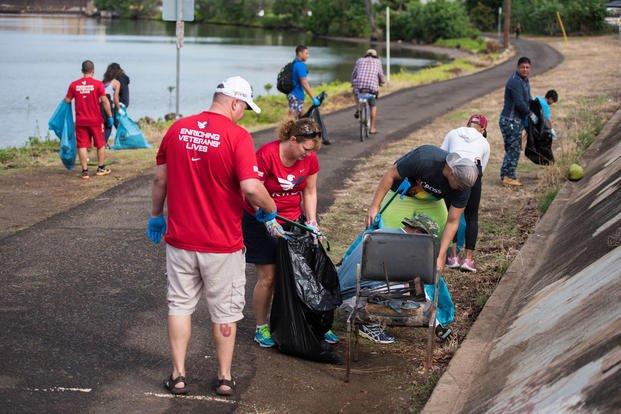It isn't that he doesn't want mental health help ... sort of. It's a combination of problems. He wants to be manly, so he doesn't want to admit that he needs help. He's worried about his career, even though there are lots of promises that getting help won't hurt it. He's worried about getting out, because he might finally decide he needs help, and then getting it will be harder.
When I ask spouses about mental health support for their troops, that's the kind of story I hear. It's more complicated than just "we need more providers" or "we need to reduce the stigma." It's all of the "we need" tos at the exact same time.
When I attended the Military Officers Association of American Warrior Family Symposium this month I heard panels of experts from across the government, including the VA and the DoD, discuss a variety of ways we can get that done.
They all acknowledged that there is no one right answer. But we have to start somewhere.
3 Ways We Can Work to Fix Mental Health Help
1. We have to work together. And that means everyone. It's not as easy as saying "we need public-private partnerships," the experts said. It's about creating a national mental health dialogue that acknowledges that it can be a challenge for every single person, not just troops and veterans. It's about working to educate mental health workers in every community about the special problems vets and their spouses may be facing. And it's about working to tackle the problems together.
2. We have to engage more than just the mental health community. And we have to stop pointing fingers, and stop complaining that the civilian community is too distant and just doesn't get it because they have never served. Instead we have to start doing the hard work.
"The issue is that there’s this huge divide … and it's not the civilians fault. It’s just that their worlds are really separate. From my perspective ... we need to do a job of engaging the average American," said Marjorie Morrison, a military mental health expert who runs the PsychArmor Institute in San Diego, California.
3. We have to teach veterans to use their own struggles as motivation. I think it's safe to say that the vast majority of veterans who move to the civilian world aren't falling apart. They aren't in such a terrible mental condition that they need intense help right now. Most veterans and their families just need consistent empathy and support. They need people to understand what they are dealing with, and just a little push to move forward. And they can be the people to help their communities give them that push.
Veterans "are, in fact, enormous assets to their communities," said Shelley MacDermid Wadsworth, a military family researcher at Perdue University. "Even if they are struggling themselves, that translated into strong motivation to help their communities."
Organizations like Team Red, White and Blue and Team Rubicon know that. Those veteran-centric organizations connect communities with veterans in very different ways, building a bridge on which both communities can meet and build understanding. But that whole "be the change you want to see" thing takes motivation and knowing that there are already groups out there doing that work. All you need to do is jump in.










